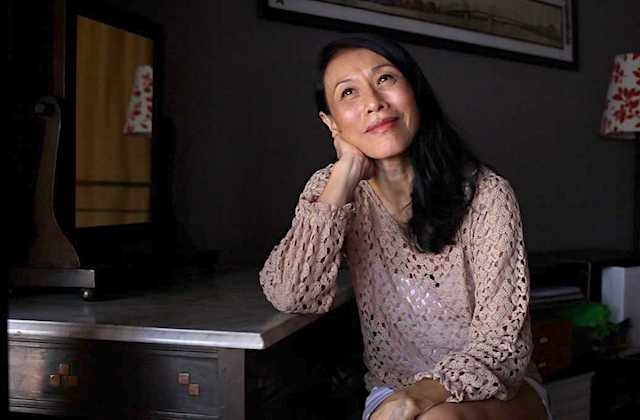Members of Asian diasporic communities around the world get the chance to see themselves in Hollywood splendor on August 17, when “Crazy Rich Asians” opens in theaters. Warner Bros.’ adaptation of Kevin Kwan’s best-selling novel about an Asian-American woman navigating the complex social codes of her boyfriend’s wealthy Singaporean family is the first major U.S. studio film with an entirely Asian cast in nearly 25 years. The actors who give the film life, including British newcomer Henry Golding and Chinese-American veteran Lisa Lu (“The Joy Luck Club”), speak to the diversity of Asians, who are frequently overlooked and typecast in Hollywood.
Tan Kheng Hua (“Marco Polo”) does not encounter the fallout of these representation issues as much as her United States-raised counterparts. The Singaporean actress traces her ancestry to China, although her ethnic Chinese maternal grandparents were born in Malaysia—something she describes as a "common origin story" for much of Singapore’s Chinese majority population. She spent most of her career working in Asian theater and screen projects, including the long-running sitcom “Phua Chu Kang Pte Ltd,” with other Asian diasporic actors. But Tan is familiar with the struggles of Asian Americans in entertainment in beyond, having earned her university degree in the U.S.
You can catch Tan in “Crazy Rich Asians” as Kerry Chu, the mother of protagonist Rachel Chu (Constance Wu, “Fresh Off The Boat”). She spoke to Colorlines ahead of the movie’s release about her understanding of Asian-American struggles, the importance of representation for Asian entertainers and how Singapore approaches media diversity.
Most of your career has played out in Asia, away from the racial justice issues that Asian Americans confront. What relationship do you have with the Asian diaspora in the U.S.?
I studied at Indiana University Bloomington, and my younger brother actually lives in Santa Fe, New Mexico. So I have very close ties with America and have a little bit of first-hand experience of what it must be like to be an Asian in America. I live in Singapore, where Asians are the majority. It is a huge difference from the United States, so I can imagine how excited Asian Americans must be about a movie such as “Crazy Rich Asians.”
When I studied at Indiana, I had to drive past Martinsville to get to Indianapolis and take the plane home. I don’t know what it’s like now, but I’m 55, so when I was a student, Martinsville was well-known as the headquarters of the Ku Klux Klan. Every Asian student used to tell me, “Make sure your petrol tank is fully filled, do not stop, drive right through and be safe.” I never had any experience like that in Singapore.
You operate in a global entertainment market with a lot of capital concentrated in the United States. Has Hollywood racism, like what your co-star Constance Wu frequently critiques, had any impact on your career?
I’ve done quite a few international projects, like “Marco Polo” on Netflix and “Crazy Rich Asians,” but most of what I do is based in Singapore or Malaysia. I don’t think that these dynamics influenced me much. But being on “Crazy Rich Asians” with American Asians, under the leadership of people like [director] Jon M. Chu, we very quickly got an idea of the significance of this movie vis a vis Asian Americans in 2018, with everything going on in your country. I felt very moved by this energy bringing people together, and how important it was for so many of the American Asian actors and crew. I felt very much a part of that community, and wanting to do something to help.
I remember one night, when I was filming quite late. I was sitting next to Jon Chu, and his mom called him. He spoke to her for a little bit, then passed his phone over to me. Suddenly, she started speaking to me in Mandarin, and I spoke back. It was an instant sort of connection—like we’ve known each other before. She came down later and I got to meet her face-to-face. It was like—I don’t know how to explain it, but it was one of those instances where because of language, you just connect.
Does Singapore wrestle with its own representation and equity issues?
I think that, sometimes, my country really makes a point of getting representation of the four main races, which are Chinese, Malay, Indian and something we call “Others,” which includes Eurasians, Caucasians, etc. When you look at our National Day campaigns and music videos, our government is obsessed with representation of those races. Because the Chinese are the majority in Singapore, I think that the country tends to be sometimes overly sensitive about not giving everybody the impression that the Chinese are running the place. It’s quite an unusual and different situation when compared to the U.S.
Watch Tan discuss a theater project she produced in Singapore:
